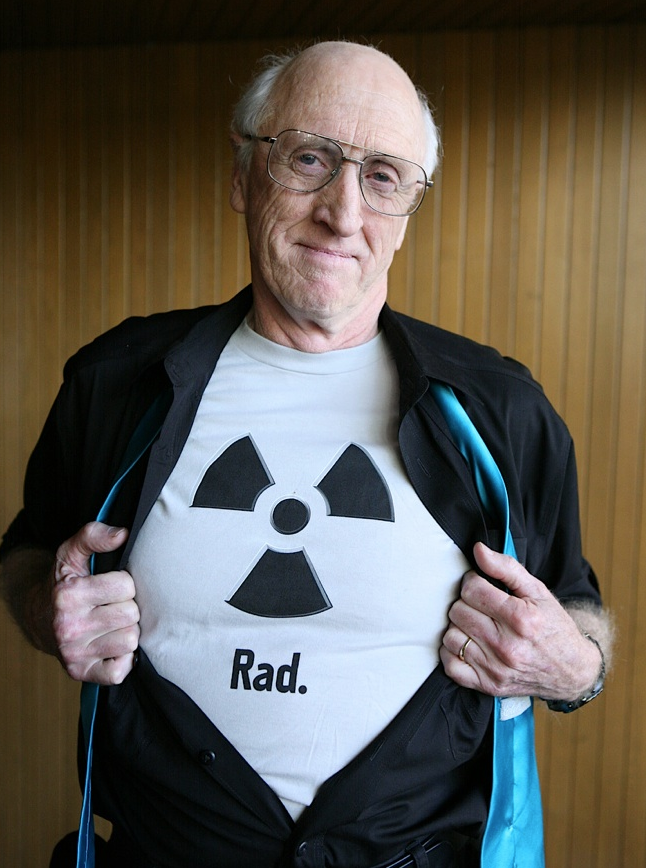
The world is entering a "wild and woolly" time of genetic engineering of food, when some of the most significant advancements may come from "amateur biotech" practitioners and in the developing world, says Stewart Brand, a self-described ecopragmatist and founder of the "Whole Earth Catalog."
Brand spoke at UNL Jan. 17 as part of the Institute of Agriculture and Natural Resources Heuermann Lecture series.
Brand, who acknowledges he's "having great fun being a heretic" among environmentalists, said genetic engineering is critical to feeding an expanding world population. He describes those who oppose genetic engineering as "superstitious, anti-science and, by the way, very harmful."
As an example, he cited golden rice, a new genetically modified rice that contains beta carotene, a source of Vitamin A critical to children's nourishment. Planting of the rice was delayed for a decade by opponents; it's only now being planted in the Philippines. Another genetically modified type of rice can "breathe under water for two weeks," which would make it invaluable in countries like Bangladesh, which experience severe flooding that now wipes out crops.
Rice feeds half of humanity, Brand noted.
The phrase "developing world" is no longer a euphemism for poor countries, Brand said. Nations that have lagged behind the United States and others truly are developing quickly and, by mid-century, many, relying on "resourcefulness, energy and just sheer gumption," will catch up. One of the keys to that advancement will be genetic engineering of foods, "a moral imperative in developing countries" that will result in healthier citizens.
Brand listed a number of foods that are being improved by genetic engineering: cassava, sorghum and bananas, all of which will see boosts in vitamin content; carrots with a calcium content matching dairy products; rice with a cholera vaccine built in; and pigs with as much heart-healthy omega-3 fatty acids as fish. "That will be really neat -- encouraging people to eat more bacon because it's good for you," said Brand, author, most recently, of "Whole Earth Discipline: An Ecopragmatist Manifesto."
If the developing world will be one leading edge of agricultural biotechnology, another will be found among do-it-yourself scientists experimenting in their own labs, which now can be built cost-effectively in a garage.
"Young people are driving this. Things are moving very fast," Brand said. "Amateur biotechnology is going to be a very interesting sequence of events."
To a question about the risks of such "dispersed innovation," compared to the highly regulated research at universities and corporations, Brand said, "Good luck stopping it. But I think we can work with it."
Brand described these DIY scientists as young and idealistic, but also responsible and serious. And the risks are not as great as some may worry, he added.
"Fortunately, it is really really hard to make something harmful, especially something that can survive in the wild," said Brand, who likes to describe his opinions as "strongly stated but loosely held."
Finally, Brand noted, some genetic engineering efforts might even bring back to life beloved, extinct species. For example, one team of scientists is working to reintroduce the once-common American Chestnut Tree to the country. Another has focused on reviving the passenger pigeon, which he described as the "most heartbreaking extinction." Some even dream of reintroducing the woolly mammoth by cloning genetic material found in bones.
"We are terraforming Earth anyway. Badly, so far," Brand said. "We cannot just stop. Therefore, learning to terraform well is the task of this century."
The next Heuermann lecturer will be Roberto Lenton, incoming founding director of the University of Nebraska's Robert B. Daugherty Water for Food Institute, at 3:30 p.m. Feb. 20.
— Dan Moser, IANR News